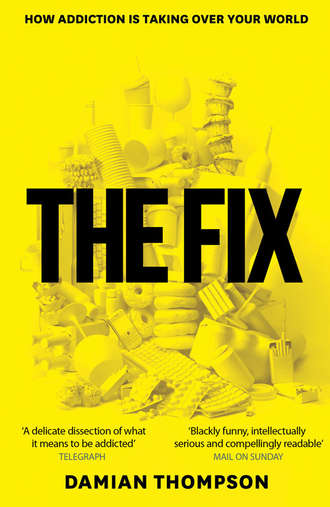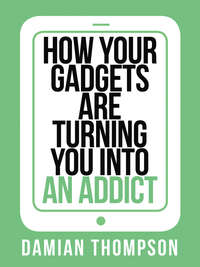
Полная версия
The Fix
As this suggests, it’s good at fastening on to cues. One sensible piece of advice that 12-step groups dole out to their members is to avoid ‘people, places and things’ that were part of their old habits. ‘If you hang around barbers’ shops, sooner or later you’re going to get a haircut,’ is an AA saying – meaning, of course, that sitting around drinking orange juice in the pub is risky for an alcoholic. The more addicted you become to something, the more sensitive you become to these cues – even after years of abstinence. Significantly, these cues are often the ‘things’ that have come to replace people in your life.
But the link between cues and desire isn’t confined to addicts. It’s part of everyday existence for people situated all along the addictive spectrum – that is, all human beings.
You don’t need to ingest any substance at all to experience a rush of dopamine: the cue is enough. The smell or even just the sight of food increases dopamine in the nucleus accumbens, the region of the brain involved in reward and motivation. It’s why our mouths water. As the psychology professors Harvey Milkman and Stanley Sunderwirth explain, this is the same type of neurochemical response that occurs when a cocaine addict sees a video of people snorting a fat line of white powder: ‘The dopamine messenger impels the organism to action, an impulse that sheer willpower cannot easily overcome.’13
I know what they mean. For some reason, watching characters drink red wine on television is more tempting for me than seeing them do it in real life; it makes me long to nip to the supermarket for a bottle of Rioja. (I don’t, I hasten to add.) Why this should be I don’t know, but in AA meetings I quite often heard speakers complain of the same thing. Some people even ‘had a slip’, to use 12-step terminology, thanks to things they had seen on screen. Cues can be made more powerful by being detached from everyday networks. This is why many slips happen when alcoholics are on holiday, away from the company of people who know they have a problem, where the booze is presented in an exotic setting that somehow detoxifies it. One businessman I know found himself – to his own astonishment – accepting a rum and coke from a stewardess on a plane flight. ‘We were so high up that it didn’t seem to count,’ he said. And thus ended the decade of abstinence of which he’d been so proud.
Milkman and Sunderwirth have produced a list of activities that boost dopamine in the nucleus accumbens. They are: crime, eating, gambling, risk-taking, sex … and hugging your loved ones. With the possible exception of hugging, there’s an addiction (or, more accurately, a huge range of addictions) lurking in all of them.
Конец ознакомительного фрагмента.
Текст предоставлен ООО «ЛитРес».
Прочитайте эту книгу целиком, купив полную легальную версию на ЛитРес.
Безопасно оплатить книгу можно банковской картой Visa, MasterCard, Maestro, со счета мобильного телефона, с платежного терминала, в салоне МТС или Связной, через PayPal, WebMoney, Яндекс.Деньги, QIWI Кошелек, бонусными картами или другим удобным Вам способом.



